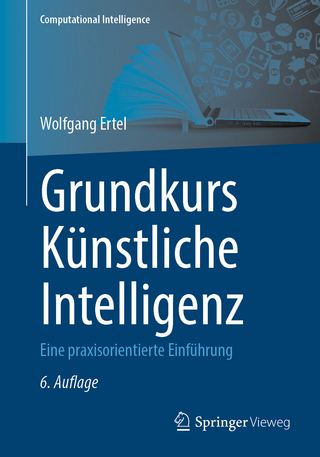
Handbook of Logic in Artificial Intelligence and Logic Programming
Seiten
1995
Clarendon Press (Verlag)
9780198537915 (ISBN)
Clarendon Press (Verlag)
9780198537915 (ISBN)
- Titel ist leider vergriffen;
keine Neuauflage - Artikel merken
This authoritative work continues the coverage of fundamental topics in knowledge, belief and time. The volume should be of interest to logicians, computer scientists, philosophers, linguists and researchers in artificial intelligence.
Knowledge, belief, and time can all qualify statements of truth and falsity. This volume addresses the modal logics involved in such qualifications, by modelling of the changing state of knowledge and belief through time. The first three chapters survey reasoning by knowledge, and the need to update belief systems to deal with contradictory information. The next two chapters address the relationship of time and change, and include a review and comparison of existing models. An analysis of computational issues in temporal logic - executable temporal logic, temporal databases, and logic programming - and an overview of current research in non-monotonic reasoning strategies follow. The final chapter focuses on modal resolution techniques as applied to the logic of knowledge and time. This book is intended for the volume is of interest to logicians, computer scientists, philosophers, linguists and AI researchers. It is of special use to researchers in deductive databases and object oriented approaches. Volume Co-ordinator:: Galton, A. (University of Exeter);
Knowledge, belief, and time can all qualify statements of truth and falsity. This volume addresses the modal logics involved in such qualifications, by modelling of the changing state of knowledge and belief through time. The first three chapters survey reasoning by knowledge, and the need to update belief systems to deal with contradictory information. The next two chapters address the relationship of time and change, and include a review and comparison of existing models. An analysis of computational issues in temporal logic - executable temporal logic, temporal databases, and logic programming - and an overview of current research in non-monotonic reasoning strategies follow. The final chapter focuses on modal resolution techniques as applied to the logic of knowledge and time. This book is intended for the volume is of interest to logicians, computer scientists, philosophers, linguists and AI researchers. It is of special use to researchers in deductive databases and object oriented approaches. Volume Co-ordinator:: Galton, A. (University of Exeter);
1: Reasoning about knowledge: a survey. 2: Belief revision. 3: Epistemic aspects of databases. 4: Time and change for AI. 5: Temporal logic. 6: Towards a computational treatment of time. 7: Non montonic temporal reasoning. 8: Modal deduction with applications in epistemic and temporal logic
| Erscheint lt. Verlag | 27.4.1995 |
|---|---|
| Zusatzinfo | line figures, tables, bibliography |
| Verlagsort | Oxford |
| Sprache | englisch |
| Themenwelt | Informatik ► Theorie / Studium ► Künstliche Intelligenz / Robotik |
| Mathematik / Informatik ► Mathematik ► Logik / Mengenlehre | |
| ISBN-13 | 9780198537915 / 9780198537915 |
| Zustand | Neuware |
| Informationen gemäß Produktsicherheitsverordnung (GPSR) | |
| Haben Sie eine Frage zum Produkt? |
Mehr entdecken
aus dem Bereich
aus dem Bereich
Eine praxisorientierte Einführung
Buch | Softcover (2025)
Springer Vieweg (Verlag)
CHF 53,15
Künstliche Intelligenz, Macht und das größte Dilemma des 21. …
Buch | Softcover (2025)
C.H.Beck (Verlag)
CHF 25,20
Buch | Softcover (2025)
Reclam, Philipp (Verlag)
CHF 11,20


